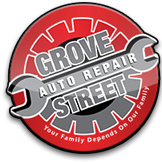Running The Shop
Managing your shop includes making sure its operating well. This can also include the building, equipment, facilities, vehicles, maintaining your bays and overall shop operations.
54 topics in this forum
-
- 0 replies
- 307 views
-
- 1 reply
- 1.7k views
-
- 1 reply
- 924 views
-
- 2 replies
- 5.8k views
-
- 1 reply
- 3.8k views
-
- 0 replies
- 1.3k views
-
- 2 replies
- 3.8k views
-
- 0 replies
- 2.1k views
-
- 2 replies
- 1.2k views
-
- 11 replies
- 3.4k views
-
- 0 replies
- 2.4k views
-
- 11 replies
- 3.2k views
-
- 3 replies
- 1.6k views
-
- 17 replies
- 2.4k views
-
- 23 replies
- 1.7k views
-
- 2 replies
- 879 views
-
- 0 replies
- 727 views
-
- 0 replies
- 590 views
-
- 0 replies
- 546 views
-
- 0 replies
- 626 views
-
- 2 replies
- 851 views
-
- 3 replies
- 700 views
-
- 4 replies
- 981 views
-
- 9 replies
- 2.3k views
-
- 36 replies
- 6.8k views
-
- 2 replies
- 1.4k views
-
- 1 reply
- 1.5k views
-
- 2 replies
- 1.3k views
-
- 6 replies
- 2.4k views
-
- 5 replies
- 2k views
-
- 0 replies
- 1.2k views
-
- 6 replies
- 2.6k views
-
- 9 replies
- 2.8k views
-
- 1 reply
- 1.5k views
-
- 4 replies
- 1.7k views
-
- 12 replies
- 3.5k views
-
- 8 replies
- 3k views
-
- 4 replies
- 2.5k views
-
- 0 replies
- 1.6k views
-
- 18 replies
- 3.9k views
-
- 4 replies
- 2.1k views
-
- 9 replies
- 2.4k views
-
- 3 replies
- 2k views
-
- 10 replies
- 3.2k views
-
- 20 replies
- 4.4k views
-
- 14 replies
- 3k views
-
- 5 replies
- 2.2k views
-
- 17 replies
- 3.6k views
-
- 19 replies
- 3.6k views
-
- 21 replies
- 4.1k views















